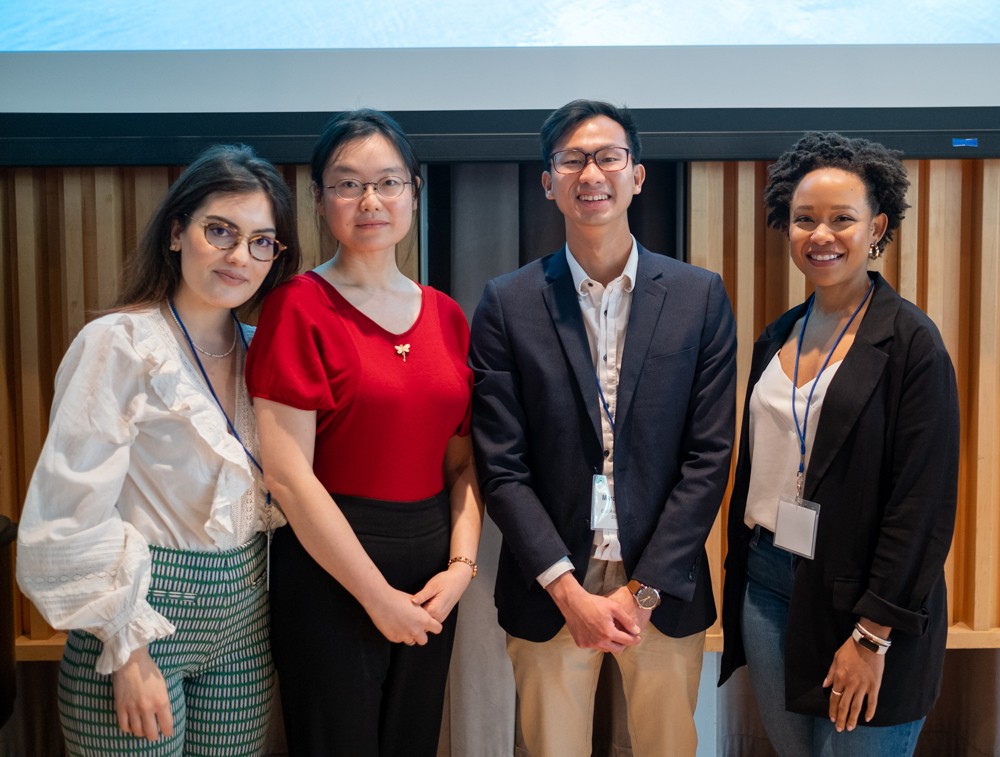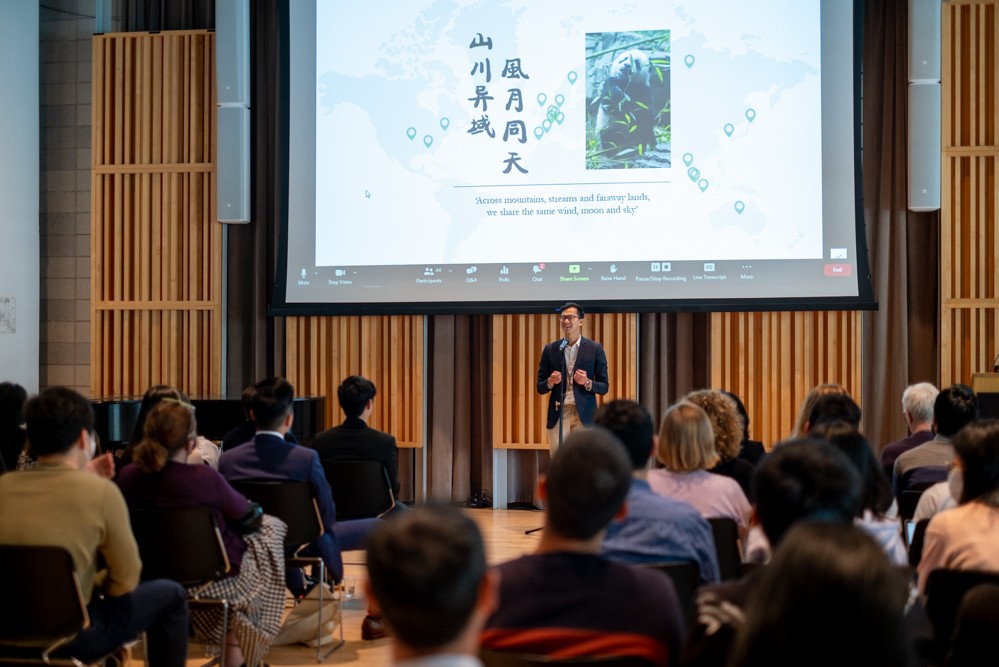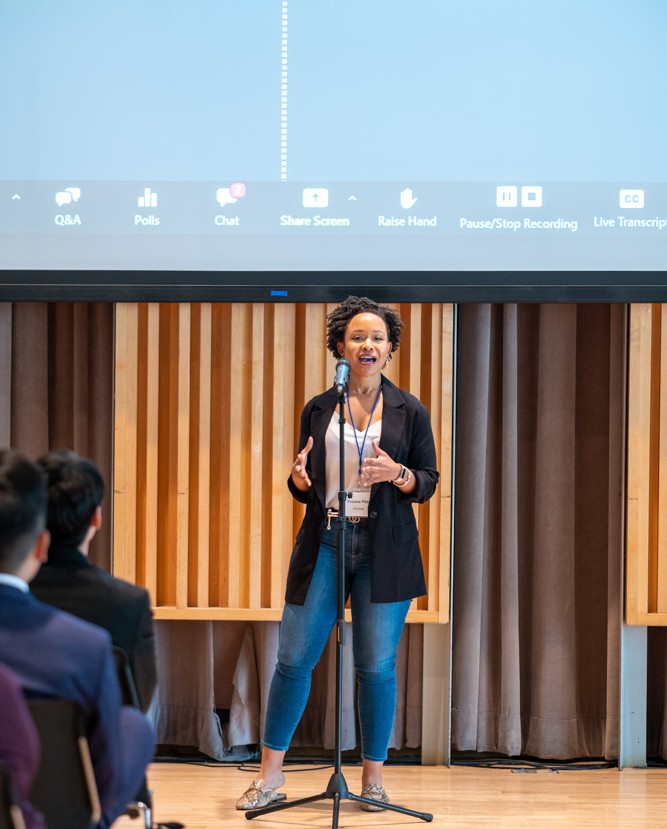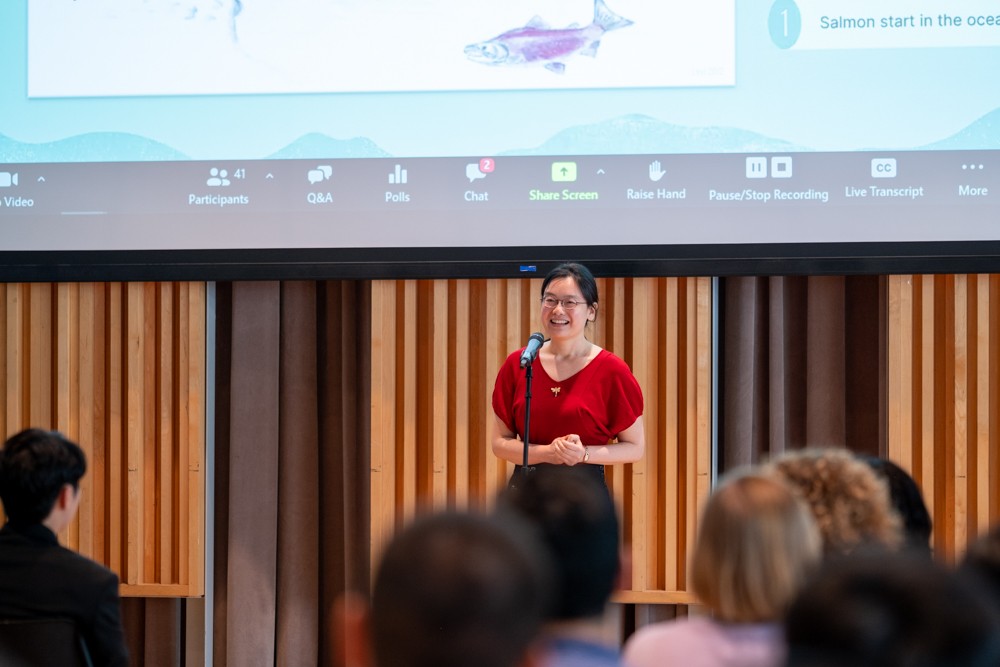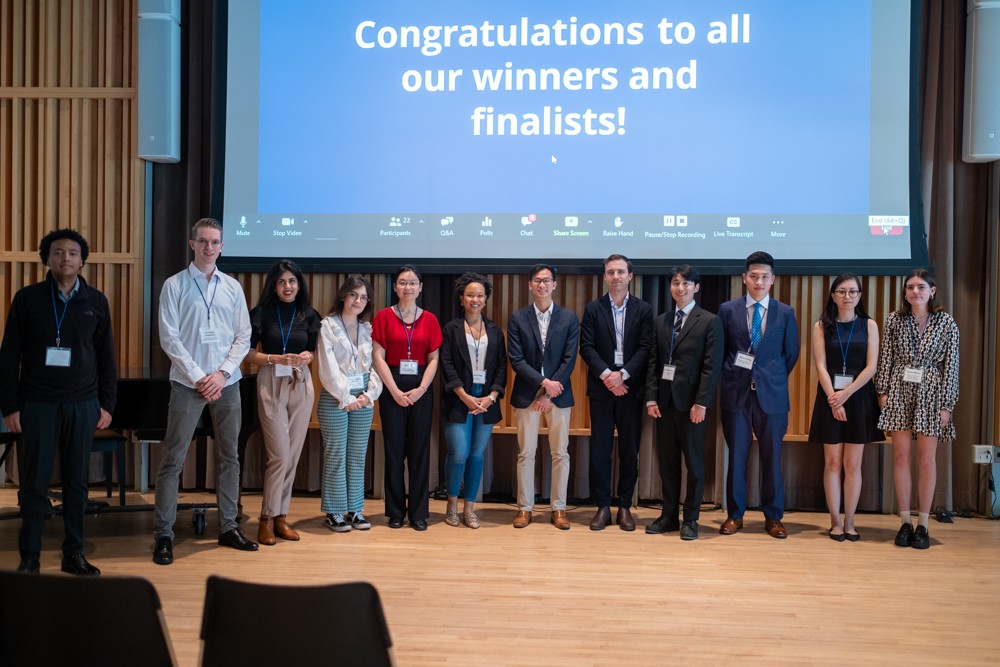GSAS Celebrates Student Research at Sixth Annual Master’s SynThesis Competition
Students and recent graduates of GSAS Master’s programs showcased their research at the sixth annual Master’s SynThesis Competition on May 5, 2022. This spirited event was held in person for the first time since 2019. In three minutes, using only one slide and no notes, 12 students presented their thesis research to a standing-room-only audience of students, faculty, and staff, and a multidisciplinary panel of faculty and alumni judges. The event was also live-streamed, with viewers tuning in from from Singapore to India to Germany. The research topics ranged from the predator-prey relationship between Alaskan bears and salmon to Chinese development finance in Africa; from nineteenth-century Japanese historical fiction to corporate America’s response to Black Lives Matter.
GSAS Compass, the Graduate School’s career development office, hosted the event. “I look forward to SynThesis every year because it embodies the Graduate School’s central aim—to provide our students with opportunities that allow them to thrive academically, professionally, and personally both during their sojourn with us and afterward,” said Carlos J. Alonso, dean of GSAS.
For the first time in the history of SynThesis, two MA candidates tied for first place: Marcus Tan from East Asia: Regional Studies, and Yvonne Pitts in Sociology. Marcus Tan presented Panda Diplomacy: A Study of Chinese Diplomatic Discourse, which engaged China’s strategy of using panda bears to improve diplomatic relations with other countries. Yvonne Pitts presented Do Black Lives Matter in Corporate America? exploring the influence of the Black Lives Matter movement on organizational behavior. Alice Yan, an MA candidate in Ecology, Evolution, and Conservation Biology, won third place for her presentation Table for Two: Bears and Salmon, a study of the predator-prey relationship in the Alaskan waterways.
“When writing our thesis, we’re often taught how to connect our research to academic literature, and to use scholarly jargon to help advance our arguments, which often makes academic research inaccessible to people who aren’t experts on the subject,” co-winner Marcus Tan noted. “SynThesis was a very new experience because it made me think about how to effectively present my thesis research in the most easily understandable way.” Co-winner Yvonne Pitts agreed, and recognized how she could use this forum to educate the audience about her topic. “The competition challenged me to find the appropriate balance between storytelling and informing,” she commented. “I also hoped that I challenged the audience to think more critically about how they as individuals engage with diversity rhetoric.”
GSAS congratulates all of the competition’s twelve finalists.
Click here to view the presentations.
Finalists:
- Yi Deng, East Asian Languages and Cultures
- Sanya Dhingra, South Asian Studies
- Shuo Huang, Quantitative Methods in the Social Sciences
- Christian Junghans, Latin America and the Caribbean: Regional Studies
- Colton Klein, Art History and Archaeology
- Hanbyeol Koo, International and World History
- Mehari Fitsum, Global Thought
- Yvonne Pitts, Sociology
- Anna Lia Maria Soddu, European History, Politics, and Society
- Marcus Tan, East Asia: Regional Studies
- Emma Wilbur, Russia, Eurasia, and Eastern Europe: Regional Studies
- Alice Yan, Ecology, Evolution, and Conservation Biology

